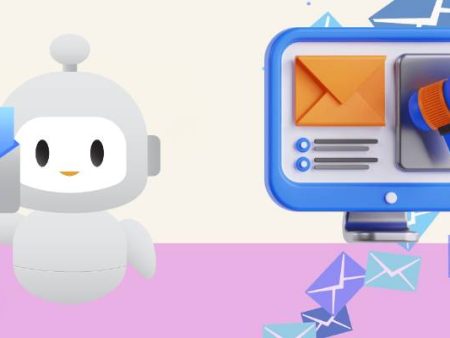If you’ve ever sat staring at a blank page with a looming deadline, the rise of AI writing tools probably felt like a gift. But then, just as quickly, another thought creeps in: What does Google think of all this?
That’s the heart of the conversation right now—whether how AI copywriting fits neatly with Google’s ever-evolving algorithms, or whether it’s setting us up for a war between automation and authenticity.
I’ve heard people argue passionately on both sides: some saying AI is the ultimate ally for SEO, others warning it will get entire websites penalized.
So, is AI a friend or a foe in the eyes of Google? Let’s walk through it together.
A Quick Refresher: How Google Thinks
Google doesn’t care about your favorite AI platform. It cares about one thing: the searcher. The goal has always been to serve the most relevant, accurate, and helpful content possible.
This is why algorithm updates keep rolling out—from Panda to Penguin, Hummingbird to RankBrain, and more recently, the Helpful Content Update. Each step is about filtering fluff and rewarding genuine usefulness.
So when we ask whether AI content passes the test, the question isn’t “Did a machine write this?” It’s “Does this answer the searcher’s intent better than other options?”
That distinction matters.
The Rise of AI Copywriting: Too Fast to Ignore
The speed at which AI has been adopted is staggering. According to Statista, by late 2024, 58% of marketers worldwide were using AI for content creation, whether drafting blogs, writing ads, or generating product descriptions.
Gartner projects that by 2026, over 80% of online copy will be AI-assisted.
This isn’t a fringe experiment anymore. Businesses are investing heavily in AI tools for copywriting like Jasper, Copy.ai, SurferSEO, and of course, ChatGPT.
But Google? Google has been cagey. It hasn’t outright condemned AI writing. Instead, it emphasizes what it’s always emphasized: quality, originality, and relevance.
How AI Copywriting Works with SEO
At its best, how AI copywriting can supercharge SEO efforts is pretty straightforward:
- Speed: Drafts are generated instantly, allowing teams to scale content output.
- Optimization: Many tools integrate directly with SERP analysis to suggest keywords, tone, and headings.
- Consistency: AI can maintain style guidelines across thousands of pages.
- Content clusters and topic mapping: AI can help strategists identify related subtopics and build interconnected pages that reinforce authority.
It’s like having an intern who never gets tired—just one who occasionally makes bizarre mistakes or repeats clichés.
The Debate: Are We Gaming the System?
Here’s where things get tricky. The debate: are we actually serving readers or just creating more content for algorithms?
Some critics argue that AI-generated blogs—even polished ones—lack depth, empathy, and originality.
They may check SEO boxes, but do they really engage people? Others claim Google’s AI-driven ranking systems can’t tell the difference if the content is well-structured and helpful.
The fear is that if everyone leans too hard on automation, the web will drown in generic content—and Google will eventually crack down hard.
It wouldn’t be the first time. Remember the keyword-stuffing era? It worked until Google caught on. The same could happen here.
Where AI and Google Play Nicely
Let’s not paint this as all doom. There are clear ways AI can align beautifully with Google’s priorities:
- Answering questions directly. AI excels at Q&A formats, which Google loves for featured snippets.
- Building topical depth. With AI suggesting related phrases, it’s easier to create comprehensive hubs—strong content clusters and pillar pages that rank.
- Refreshing old content. AI can quickly update outdated sections, keeping pages relevant.
- Scaling FAQ sections. This is low-risk, high-reward territory for AI-generated copy.
When used thoughtfully, AI doesn’t just pass Google’s test—it can actually help brands meet it faster.
Where Things Go Off the Rails
But of course, there are pitfalls—big ones.
- Hallucinations: AI sometimes makes up statistics, studies, or sources. This destroys credibility fast.
- Generic tone: Overreliance on AI often leads to “sameness,” which can harm brand voice.
- Over-optimization: Some AI drafts keyword-stuff without subtlety, triggering penalties.
- Shallow answers: AI-generated articles may look long but feel empty, failing the “Helpful Content” bar.
Google’s algorithm is increasingly focused on user signals like dwell time, bounce rates, and engagement. If readers sense fluff, they’ll leave—and rankings will follow.
The Human Element: Why Writers Still Matter
This is where I’ll put my foot down. Machines don’t replace strategists or writers. Not yet, maybe not ever.
Humans bring the empathy, humor, and context that Google can’t measure directly but that audiences crave.
When someone searches “best dog food for senior labs,” they don’t just want a sterile list—they want reassurance, personal stories, maybe even a little warmth.
AI can mimic tone, but it doesn’t care. And that difference, however small, makes human oversight essential.
Case Studies: What We’re Seeing in 2025
- E-commerce brands are using AI to generate thousands of product descriptions, but still relying on human editors to fine-tune for brand language.
- Blogging platforms are experimenting with fully AI-written content, but many report high bounce rates when humans don’t revise.
- Agencies are adopting hybrid models—AI for first drafts, strategists for shaping narrative and voice.
This hybrid workflow seems to be where most companies find balance.
What the Data Says
A few recent findings underline the reality:
- A 2024 Search Engine Journal survey found 74% of SEO professionals use AI for drafting, but 68% say it needs heavy editing.
- According to HubSpot, 82% of marketers say AI helps them create content faster, but only 45% feel it consistently matches brand voice.
- BrightEdge predicts that by 2026, AI will be involved in 90% of SEO workflows.
So yes, AI is everywhere—but not without humans steering the wheel.
Friend or Foe? Maybe Both
So, is AI a friend or a foe in Google’s eyes? Honestly, it’s both.
- Friend: When AI helps scale quality, freshness, and topical depth.
- Foe: When AI floods the web with thin, repetitive, misleading content.
The truth is, it’s not AI that Google is judging—it’s us. How we choose to use it. Are we cutting corners, or are we pairing efficiency with empathy?
What the Future Might Hold
Looking forward, I see three likely paths:
- Hybrid dominance. AI drafts, humans refine—that’s the winning formula.
- Algorithm crackdowns. If AI floods get worse, Google may roll out updates specifically targeting repetitive machine-like content.
- Smarter AI. Future tools will improve at context and originality, reducing—but not eliminating—the need for editing.
In the long run, I suspect AI will become invisible. It’ll just be another part of content workflows, much like spellcheck or Grammarly. The difference won’t be “AI vs human”—it’ll be “good content vs bad content.”
Final Thoughts: My Honest Take
I’ve gone back and forth on this, but here’s where I land. AI is not the enemy of SEO. Used well, it’s a friend—a powerful assistant. Used poorly, it’s a foe, one that could tank rankings and erode trust.
The smartest move is balance. Use AI to lighten the load, but let humans guide the strategy, inject emotion, and ensure quality. That’s not just playing nice with Google—that’s respecting the reader.
And if we forget the reader in all this? Well, then we’ve already lost, no matter how clever the tools get.
Quick Comparison: AI vs Human Copywriting for SEO
| Factor | AI Copywriting | Human Copywriting |
| Speed | Instant | Slower |
| Scale | Unlimited | Limited |
| Accuracy | Risk of errors | Stronger fact-checking |
| Brand voice | Generic | Authentic |
| Empathy | Simulated | Genuine |
| SEO alignment | Excellent | Context-driven |
Conclusion
So, friend or foe? The answer is… both. AI isn’t inherently good or bad—it’s a tool. And like any tool, its value depends on the hands that wield it.
Google doesn’t care if it’s AI or human-made. It cares whether it helps people. That’s the bottom line.
And maybe that’s the lesson here. If we use AI as an ally—not a shortcut, not a crutch—then everyone wins: the strategist, the reader, and yes, even Google.


